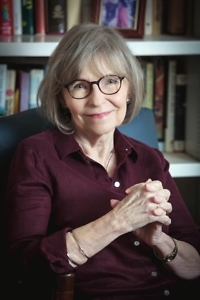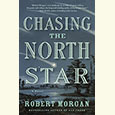Deception, War, … Murder?
Gerry Wilson’s debut novel explores the insidious nature of generational lies
Gerry Wilson’s debut historical novel, That Pinson Girl, is set in 1918 Mississippi. The book begins as Leona Pinson is delivering her illegitimate child during the middle of winter, with no one but her distant mother and her aunt to help. It’s a complicated delivery that may endanger Leona’s life. This tense opening brings forth numerous questions that keep the reader invested from the first pages.
 While the novel focuses on Leona Pinson’s story, the chapters alternate third-person points of view among several of the characters, including Raymond Pinson, Leona’s unpredictable, violent older brother; Luther Biggs, a man once enslaved by Leona’s grandfather, who now owns a slice of land gifted to him near the Pinson property; and Sally, Leona’s aunt who is a little person with physical deformities. Through the alternating perspectives, we learn many of the secrets in the town and the negative effects these secrets have on families, friendships, and romantic relationships. One of the biggest secrets of all is the identity of the father of Leona’s child. Leona, however, is determined never to name him, even if it means she suffers further ostracization in town.
While the novel focuses on Leona Pinson’s story, the chapters alternate third-person points of view among several of the characters, including Raymond Pinson, Leona’s unpredictable, violent older brother; Luther Biggs, a man once enslaved by Leona’s grandfather, who now owns a slice of land gifted to him near the Pinson property; and Sally, Leona’s aunt who is a little person with physical deformities. Through the alternating perspectives, we learn many of the secrets in the town and the negative effects these secrets have on families, friendships, and romantic relationships. One of the biggest secrets of all is the identity of the father of Leona’s child. Leona, however, is determined never to name him, even if it means she suffers further ostracization in town.
As more secrets are uncovered, they reveal a family tree much more tangled than it initially seems. Leona must learn not only how to be a young single mother but also how to navigate her brother’s dangerous moods, as well as run the farm after her father’s death and her mother’s withdrawal into herself and her Bible. She must also manage a loving yet strained relationship with Luther and his developmentally disabled son and maintain her friendships after the betrayal of keeping her courtship and resulting pregnancy hidden.
World War I has begun, and many of the men in town are heading off to fight. Raymond, however, is not allowed to go since he is the head of the household and sole provider for the Pinson family. His resentment at being unable to participate in the defense of his country is a sore spot he alleviates with heavy drinking and brutality, which is not directed solely to his own family. He’s a member of a rag-tag Ku Klux Klan group that wreaks havoc on Black and sometimes white individuals in town. For example, before his death, Raymond’s father negotiates a trade with their neighbor Tobe Sanders, giving some Pinson land away to Sanders with the caveat that the Pinson men can still hunt on the property. However, once Sanders discovers an illegal moonshine still built by Raymond on his land, he revokes the hunting rights. Raymond is out for revenge, determined to intimidate and frighten Sanders into gifting the land back to the Pinson family, and he’s willing to use his Klan connections to make his point.
 Though the overall story is tense and suspenseful, Wilson doesn’t adhere to the action-focused narrative of many crime and mystery novels. Rather, her seventh-generation Mississippian roots bring a storytelling style that pays attention to nature, unspoken social cues and expectations, and the silent dignity of living in poverty in the South. For example, Wilson does not glorify or dramatize Leona’s birth scene; instead, she focuses on the effort that goes into everyday tasks in 1918, taking the time to describe how Leona’s Aunt Sally is able to navigate around the room to aid Leona in her birth:
Though the overall story is tense and suspenseful, Wilson doesn’t adhere to the action-focused narrative of many crime and mystery novels. Rather, her seventh-generation Mississippian roots bring a storytelling style that pays attention to nature, unspoken social cues and expectations, and the silent dignity of living in poverty in the South. For example, Wilson does not glorify or dramatize Leona’s birth scene; instead, she focuses on the effort that goes into everyday tasks in 1918, taking the time to describe how Leona’s Aunt Sally is able to navigate around the room to aid Leona in her birth:
When [Leona] cried out, her aunt slid down [from her chair] and went to the bureau where the basin was. She used a milking stool as a step, wrung out a cloth with her stubby fingers, came back to the bed, hoisted herself up. She tried to bathe Leona’s face, but Leona covered her eyes with her hands.
Readers of Gerry Wilson’s That Pinson Girl may come for the scandal of a young woman’s mysterious pregnancy, but they will stay for the complex characters and their interwoven lives and histories, as well as Wilson’s reassuring narrative style that gradually submerges the reader further and further into the story like a loving but fraught baptism.

Abby N. Lewis is from Dandridge, Tennessee. She is the author of the poetry collection Reticent, the chapbook This Fluid Journey, and the newest chapbook Palm Up, Fingers Curled from Plan B Press.


